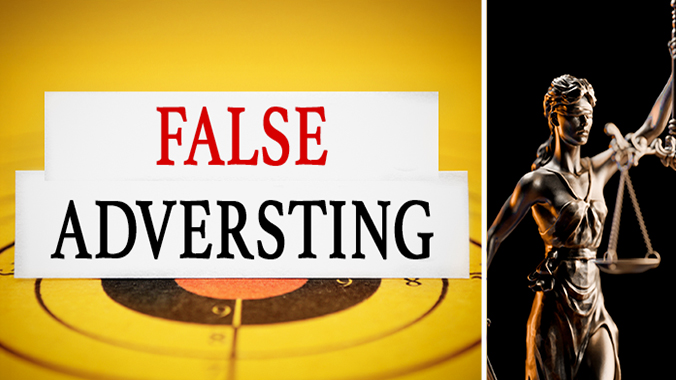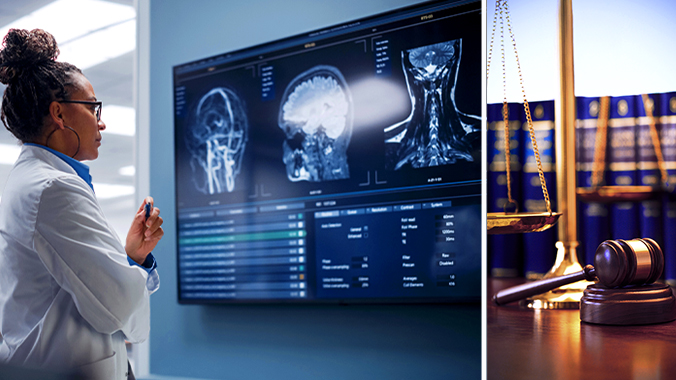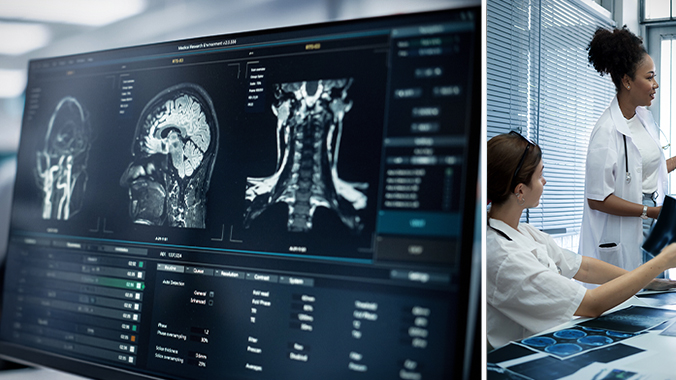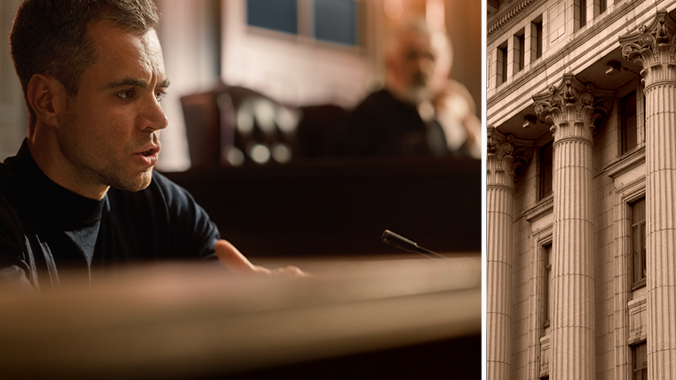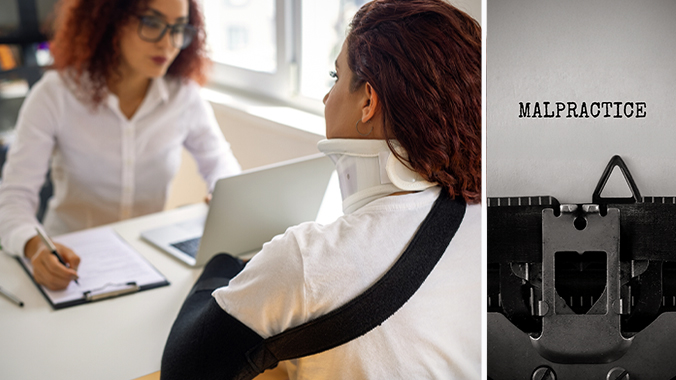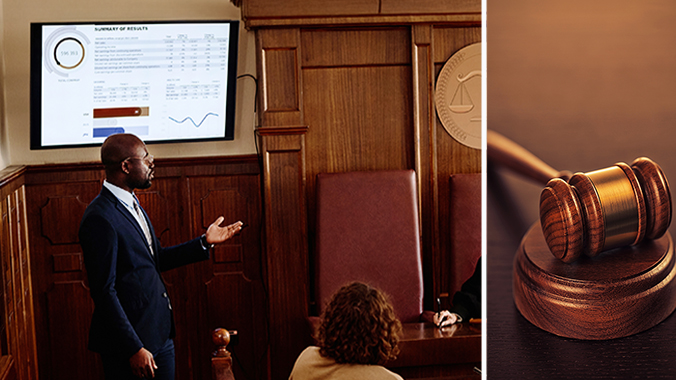Exploring Treble Damages: RICO Implications from Medical Marijuana Inc. v. Horn on Personal Injury

Sarah focuses her practice on product liability matters, mass tort cases, and other complex commercial disputes. Recognized as a “One to Watch” and “Key Lawyer” in the areas of product liability and mass tort defense, Sarah is highly regarded for her extensive experience managing complex, high-profile cases for major U.S. and international corporations in both state and federal courts.

Cal is an experienced trial attorney who represents clients in complex civil, white-collar criminal, and RICO litigation matters and state and federal government investigations. As a seasoned trial attorney, he has served for years as a faculty member for the National Institute for Trial Advocacy (NITA) and the firm’s trial advocacy program for associates.
On-Demand: November 19, 2025
2 hour CLE
Tuition: $195.00
Co-Sponsored by myLawCLE
Get this course, plus over 1,000+ of live webinars.
Learn More
Training 5 or more people?
Sign-up for a law firm subscription plan and each attorney in the firm receives free access to all CLE Programs
Program Summary
This CLE examines the evolving intersection between treble-damage statutes (especially civil RICO) and personal injury claims, focusing on the Supreme Court’s decision in Medical Marijuana, Inc. v. Horn and its implications for litigators. The program will review the doctrinal background of treble damages and their application in tort and statutory regimes; analyze the facts, reasoning, and vote in Horn; explore how Horn shifts risk and opportunity in personal injury and consumer-product litigation; and propose strategies and pitfalls for practitioners (both plaintiffs’ and defense) going forward.
Key topics to be discussed:
- Treble damages: Origins, purpose, and statutory frameworks
- The RICO statutory text and pre-Horn precedents
- Medical Marijuana, Inc. v. Horn — factual and procedural setting
- Horn opinion analysis
- Implications for personal injury and product liability litigation
- Strategic considerations for plaintiffs’ counsel
- Defensive strategies for respondents
- Hypotheticals and breakout discussion
This course is co-sponsored with myLawCLE.
![]() Closed-captioning available
Closed-captioning available
Speakers
 Sarah E. Harmon | Winston & Strawn LLP
Sarah E. Harmon | Winston & Strawn LLP
Sarah focuses her practice on product liability matters, mass tort cases, and other complex commercial disputes. Recognized as a “One to Watch” and “Key Lawyer” in the areas of product liability and mass tort defense, Sarah is highly regarded for her extensive experience managing complex, high-profile cases for major U.S. and international corporations in both state and federal courts.
Sarah has handled multi-jurisdictional litigation in federal and state courts and represents companies, manufacturers, utilities, and their insureds in cases alleging personal or catastrophic injury and wrongful death due to toxic product exposure. She maintains an active pro bono practice, advocating for individuals seeking asylum in the United States, indigent defendants in criminal cases, and prisoners alleging mistreatment. Notably, she led the team that successfully fast-tracked the asylum application of a Ugandan man who endured severe torture due to his political affiliation, securing a grant of asylum within just five months.
Prior to joining Winston, Sarah was a key member of the team representing a major distributor in the opioid litigation. She also successfully represented numerous companies, including Fortune 100 companies, in product liability and mass tort cases, guiding them through all stages of litigation from initiation through appeals.
 Callan G. Stein | Troutman Pepper Locke
Callan G. Stein | Troutman Pepper Locke
Cal is an experienced trial attorney who represents clients in complex civil, white-collar criminal, and RICO litigation matters and state and federal government investigations. As a seasoned trial attorney, he has served for years as a faculty member for the National Institute for Trial Advocacy (NITA) and the firm’s trial advocacy program for associates.
With a background as a trial attorney in both civil and criminal matters, Cal is uniquely positioned to handle litigation involving the Racketeer Influenced and Corrupt Organizations Act (RICO). He has extensive experience defending businesses and individuals across a broad spectrum of industries who have been accused of either civil or criminal RICO violations. Cal has successfully tried and arbitrated RICO cases that alleged all manners of racketeering activity, including mail fraud, fraud wire, money laundering, embezzlement, homicide, and violations of federal statutes such as the Food, Drug and Cosmetics Act and the Controlled Substances Act. Cal hosts the “RICO Report,” a podcast series devoted entirely to the RICO statute.
Cal also handles a wide range of commercial litigation, including fraud, breach of contract, and business tort cases. He frequently litigates these types of cases for clients who operate in highly regulated industries, including hospitals, clinical laboratories, and other health care providers, pharmaceutical and medical device companies, insurance providers, and institutes of higher education and academic medical centers. These cases often take the form of breach of contract litigation (e.g., provider agreements), whistleblower/qui tam lawsuits (alleging violations of the False Claims Act), or civil RICO cases. Cal is also experienced representing doctors and other health care providers in disputes involving medical staff bylaws, peer review and physician discipline hearings, utilization review management issues, and fraud research.
In his white-collar criminal practice, Cal defends businesses and individuals facing government investigations conducted by state and federal prosecutors and administrative agencies. In the health care and life sciences industries, he regularly represents physicians, physician practices and other providers, hospitals, CLIA laboratories, nursing homes and other long-term care facilities, pharmacists and pharmacies (including compounding pharmacies), and pharmaceutical and medical device companies facing government investigations or enforcement actions involving the False Claims Act (FCA), the Anti-Kickback Statute, the Stark Law, other health care fraud and abuse laws, the Food Drug and Cosmetic Act (FDCA), drug diversion laws, public nuisance claims, and unfair and deceptive marketing suits.
Cal also handles FCA and fraud cases involving other industry sectors, including in connection with Covid-19 programs such as the Paycheck Protection Program (PPP) and the Provider Relief Fund (PRF) operated by the Health Resources and Services Administration (HRSA). In 2024, Cal won summary judgment for a client accused of PPP fraud in the first PPP fraud qui tam case to reach the dispositive motion stage in the U.S.
Cal proactively works with clients to help mitigate potential compliance issues and government actions. He develops and implements risk mitigation strategies such as enforcing, updating, and enhancing corporate compliance programs, and regularly conducts internal investigations of complaints and other internal issues to prevent them from ripening into government investigations or whistleblower lawsuits. Drawing from an in-depth knowledge of the methods used by prosecutors and regulators, Cal investigates allegations and advises clients on possible remediation strategies for even the most complex and sensitive issues.
Cal also frequently represents and advises higher education clients, particularly in areas related to collegiate athletics and Name, Image, and Likeness (NIL) rights and compliance. Cal provides NIL compliance advice and internal investigation services to major universities, including those that participate in Division I football and basketball, and likewise advises schools on athletics contracts, conference affiliations, conference realignment, and other NCAA related issues. Cal also represents and advises businesses on NIL contracts, as well as NIL collectives on formation and compliance matters. Cal hosts the firm’s “Highway to NIL” podcast that discusses the legal landscape and developments in NIL law.
Agenda
I. Treble damages: Origins, purpose, and statutory frameworks | 1:00pm – 1:15pm
- The rationale behind treble damages (deterrence, punitive/extra-compensatory incentive, “private attorney general”)
- Key statutory regimes providing treble damages (RICO, Clayton Act/antitrust, certain consumer-fraud statutes, state analogues)
- Interaction between treble damages and usual tort remedies: Which statutes displace or supplement, and limits on overlapping recoveries
- The distinction between compensatory, exemplary, and punitive components in treble awards
II. The RICO statutory text and pre-horn precedents | 1:15pm – 1:30pm
- The civil provision of RICO: 18 U.S.C. § 1964(c) — “any person injured in his business or property by reason of”
- The “injury” requirement: Textual canons, ordinary vs. technical/legal meaning
- Pre-Horn circuit splits over whether economic losses flowing from personal injury can be “injury to business or property” (e.g. Sixth, Seventh, Eleventh Circuits rejecting such recovery; Ninth, Second allowing)
- The “antecedent personal injury bar” doctrine as developed in prior decisions and its critiques
III. Medical Marijuana, Inc. v. Horn — factual and procedural setting | 1:30pm – 1:45pm
- The facts: Horn’s injury, use of a CBD product marketed as THC-free, positive drug test, job loss
- Procedural history: District court ruling, Second Circuit, cert. grant
- Parties’ arguments (Horn’s framing vs. Medical Marijuana’s limitations)
- The question presented to the Supreme Court: Whether RICO categorically bars recovery for business or property harms deriving from personal injury
IV. Horn opinion analysis | 1:45pm – 2:00pm
- Majority opinion (Barrett): Key textual reasoning, rejection of the antecedent-injury bar, ordinary meaning of “injured,” relationship to RICO structure and precedents
- Limits of the decision: Issues the Court did not decide (e.g. whether Horn suffered a personal injury, whether “business” includes employment, what constitutes “property”)
- Concurrence (Justice Jackson): Textualism, statutory purpose, remedial goals
- Dissent(s) (Thomas, Kavanaugh): Concerns about federalizing tort claims, distinctions between injury and loss, the risk of opening floodgates
Break | 2:00pm – 2:10pm
V. Implications for personal injury and product liability litigation | 2:10pm – 2:30pm
- Scenarios where personal injury plaintiffs may now seek treble damages under RICO (misrepresentation, fraud, defective products, prescription drugs, toxic torts)
- Potential exposure for defendants: Increased multiplier risk, expanded predicate claims, shifting of litigation strategies
- Boundary lines: What harm remains outside RICO’s reach (e.g. pure pain & suffering, non-pecuniary elements)
- Interaction with other causes of action and statutes: Preserving tort claims, avoiding double recovery, limitation periods
VI. Strategic considerations for plaintiffs’ counsel | 2:30pm – 2:50pm
- When to plead RICO-based treble damages alongside tort claims
- Structuring claims to maximize causal linkage, directness, proximate cause
- Choosing predicates (fraud, misbranding, mail/wire fraud) and proving “pattern”
- Discovery strategies to unearth enterprise evidence, internal documents, communications, logs
- Settlement leverage with treble exposure
VII. Defensive strategies for respondents | 2:50pm – 3:00pm
- Attacking proximate cause, remoteness, superseding cause; showing breaks in the chain from personal injury to economic loss
- Challenging “business or property” status of claimed harms (e.g. job loss, reputational harm)
- Motion practice: Early dismissal (Rule 12) or summary judgment grounds
- Limiting damages exposure: Bifurcation, limiting multiplier, challenging predicate sufficiency
- Insurance, indemnity, and allocation issues
VIII. Hypotheticals and breakout discussion | 3:00pm – 3:10pm
- Multiple fact patterns exploring borderline applications
- A consumer takes a supplement marketed as “safe,” suffers a latent injury, loses wages
- A patient receives a drug misprescribed, leading to increased medical costs and loss of earning capacity
- A plaintiff gets injured in an industrial accident, later suffers economic harm from misleading safety disclosures
- Group analysis: Which hypotheticals should support treble claims under Horn, which should fail, and how to draft/defend them
Credits
Alaska
Approved for CLE Credits
2 General
Alabama
Pending CLE Approval
2 General
Arkansas
Approved for CLE Credits
2 General
Arizona
Approved for CLE Credits
2 General
California
Approved for CLE Credits
2 General
Colorado
Pending CLE Approval
2 General
Connecticut
Approved for CLE Credits
2 General
District of Columbia
No MCLE Required
2 CLE Hour(s)
Delaware
Pending CLE Approval
2 General
Florida
Approved via Attorney Submission
2.5 General Hours
Georgia
Approved for CLE Credits
2 General
Hawaii
Approved for CLE Credits
2.4 General
Iowa
Approved for Self-Study Credits
2 General
Idaho
Pending CLE Approval
2 General
Illinois
Approved for Self-Study Credits
2 General
Indiana
Pending CLE Approval
2 General
Kansas
Pending CLE Approval
2 Substantive
Kentucky
Pending CLE Approval
2 General
Louisiana
Pending CLE Approval
2 General
Massachusetts
No MCLE Required
2 CLE Hour(s)
Maryland
No MCLE Required
2 CLE Hour(s)
Maine
Pending CLE Approval
2 General
Michigan
No MCLE Required
2 CLE Hour(s)
Minnesota
Approved for Self-Study Credits
2 General
Missouri
Approved for Self-Study Credits
2.4 General
Mississippi
Pending CLE Approval
2 General
Montana
Pending CLE Approval
2 General
North Carolina
Pending CLE Approval
2 General
North Dakota
Approved for CLE Credits
2 General
Nebraska
Pending CLE Approval
2 General
New Hampshire
Approved for CLE Credits
120 General minutes
New Jersey
Approved for CLE Credits
2.4 General
New Mexico
Approved for Self-Study Credits
2 General
Nevada
Approved for Self-Study Credits
2 General
New York
Approved for CLE Credits
2.4 General
Ohio
Pending CLE Approval
2 General
Oklahoma
Pending CLE Approval
2.5 General
Oregon
Pending CLE Approval
2 General
Pennsylvania
Approved for Self-Study Credits
2 General
Rhode Island
Approved for CLE Credits
2 General
South Carolina
Pending CLE Approval
2 General
South Dakota
No MCLE Required
2 CLE Hour(s)
Tennessee
Approved for CLE Credits
2 General
Texas
Approved for CLE Credits
2 General
Utah
Pending CLE Approval
2 General
Virginia
Not Eligible
2 General Hours
Vermont
Approved for CLE Credits
2 General
Washington
Approved via Attorney Submission
2 Law & Legal Hours
Wisconsin
Approved for Self-Study Credits
2 General
West Virginia
Pending CLE Approval
2.4 General
Wyoming
Pending CLE Approval
2 General
Preview
More CLE Webinars
Trending CLE Webinars




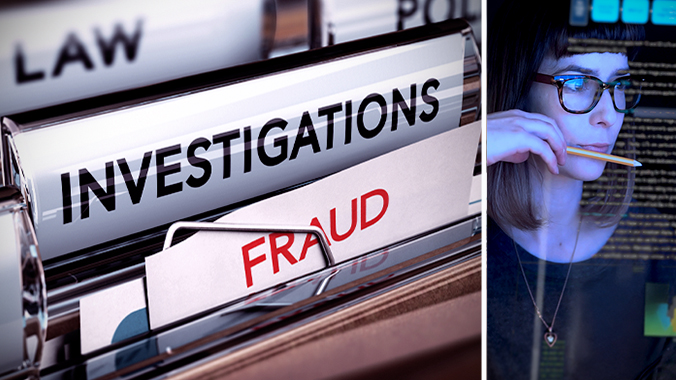



Upcoming CLE Webinars







